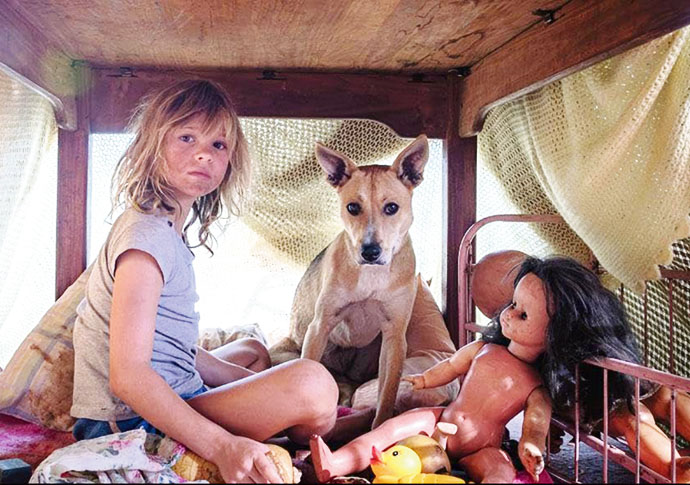Don’t Let’s Go to the Dogs Tonight is a remarkable piece of film-making
Adaptation immerses viewers in a dusty, broken, end-of-empire world
Friday, 10th October 2025 — By Dan Carrier

Lexi Venter in Don’t Let’s Go to the Dogs Tonight [Coco Van Oppens]
DON’T LET’S GO TO THE DOGS TONIGHT
Directed by Embeth Davidtz
Certificate: 15
☆☆☆☆
EMBETH Davidtz has worn two hats in this remarkable adaptation about a family caught in the turmoil of political change. As well as directing, she plays a complex character that at first glance deserves condemnation – and then pity.
Bobo (Lexi Venter) is the daughter of white Rhodesian farmers: it is 1980 and the country is becoming Zimbabwe, with Robert Mugabe taking power.
White farmers are about to have their lands taken and redistributed to put right historic wrongs, and the Fuller family are watching these events creep closer and closer to their scruffy domestic world.
Bobo has yet to be curdled by the politics of colonialism and race. She loves the family’s servant, Sarah (Zikhona Bali), who is warned off getting too close to her as a day of reckoning approaches.
Bobo explores the countryside on her motorbike, rifle slung casually over her shoulder. It could be an idyllic childhood, but as we quickly realise, its foundations have been built on the oppression of others.
The tension builds up around the farmstead, as mysterious torchlights appear in the hills and bush and Bobo’s 10-year-old imagination tries to process the information that terrorists are lurking out there and want to kill her and her family.
It’s a remarkable piece of film-making by Davidtz: she creates a sense of suffocating claustrophobia running through a landscape that has vistas as far as the eye can see.
The director puts in a faultless performance of boozy anger and shattered dreams, and you feel how powerless she is, apart from the gun she clutches. It is a prop that speaks of last stands and illustrates her commitment to the land she farms.
They know a violent wind of change is sweeping towards them. Their life of exploiting black workers to farm the land, getting sloshed at their dusty, knackered club, sleeping off the brandy clutching a submachine gun as your domestic staff look on with a sense of distaste.
Bobo narrates the story, with a mixture of filtered politics and magic realism as she explores a fractured adult world.
Based on the memoir by Alexandra Fuller, this is a remarkable adaptation on a number of levels – not least the performances by Venter and Davidzt and the imagery that immerses you in a dusty, broken, end-of-empire world.